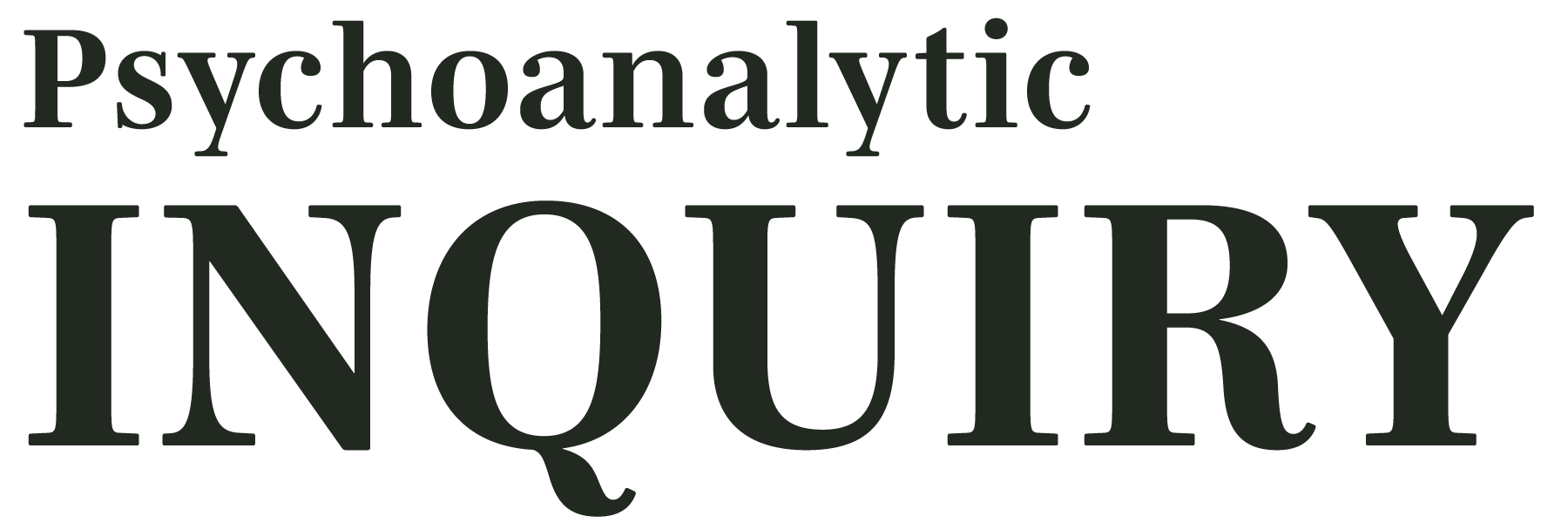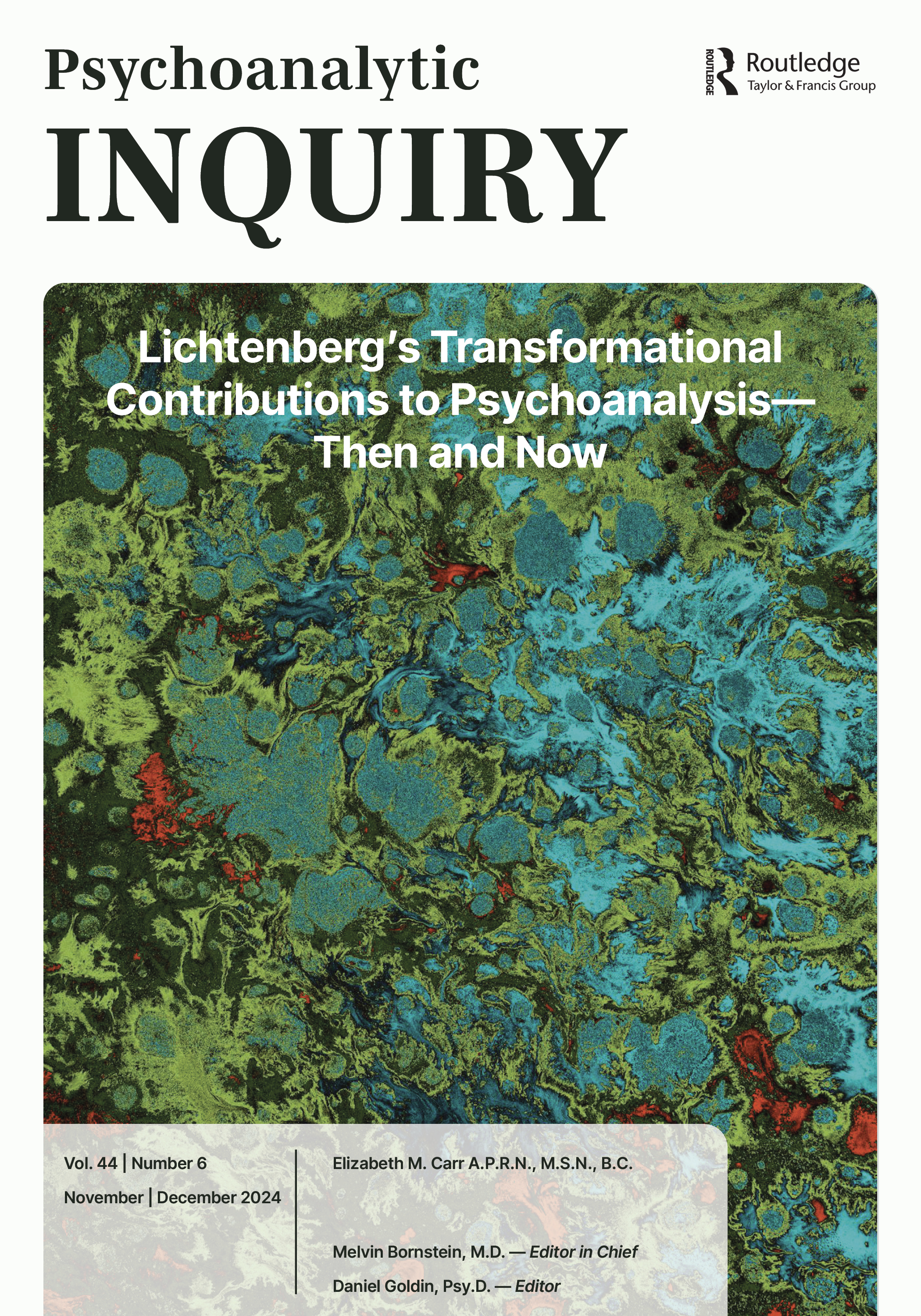
Series: Decentralized Learning Experiences
A learning experience can be almost anything, and any licensed clinician can propose one. It can be about a paper, a book or a movie. It can tackle an idea, such as field theory or dream analysis or focus on the work of a theorist. The format can be didactic or it can be a leaderless seminar or a one-hour conversation. It can be a one-off event or a series of weekly, biweekly, or monthly meetings. Currently, this program is in its pilot stage, so certain limits may apply.
Psychoanalytic Inquiry’s Learning Experiences are free.
Not all events are recorded. When we record an event it can be found in the archive.
In case of questions please contact: [email protected]
Revisiting the Bion-Bohm Connection in Light of the Therapeutic Third
October 28th at 7:00 – 8:30 PM PT
Description
By continuing a tradition of interdisciplinary dialogue that merges psychoanalytic and psychodynamic principles, with the philosophy of contemporary physics, this presentation highlights emerging conceptual structures that serve to broaden and deepen the prevalent scientific framework, especially as regard the tacit dimension of human experience and therapeutic encounters. The presentation will appeal to those interested in cutting edge approaches to psychoanalytic theory and practice, and with an appreciation for philosophy and poetry. Eugene Gendlin indeed called psychotherapy a kind of “bad poetry”, since it entails a struggle for language. Psychoanalyst Wilfred Bion and physicist David Bohm were both undoubtedly aware of this problem. There are aspects of experience that are not reducible to conceptual and linear description. Below the manifest reality, consisting of distinctions and segmentations, there is an underlying “ineffable” domain which is not directly accessible empirically. But because this domain is subject to experience it influences what it means to be human on the explicate or manifest level. From distinct angles, Bion and Bohm, both recognized that the wholeness of nature, including human becoming, rests on a fundamental principle of complementarity. Dialectical oppositions are co-presents and form a whole. To describe this ongoing interplay, Bohm used the term holomovement and the analogy of the implicate and explicate order, where, through a process of participation, potentials are brought into actuality and “unfold meaning”. Similarly, Bion describes the quest of becoming more oneself in psychoanalysis, as an interplay of O (ontology) and K (epistemology), where transformations in O (potential or being dimension) emerges from the experience (rather than the intellectual understanding) of K (knowing dimension). In therapy this entails a tripartite process of goal-directed agency versus resonant participation, and where the relation of the infinite and the finite, the implicate and explicate, relates back to the participants in the therapeutic dyad, generating what I call the “therapeutic third”. The third, in this view, pertains to a realm between client and therapist that extends beyond the intersubjective model to the ontological and transpersonal.

Sara Ekenstierna, PhD is a psychologist, writer, and philosopher, and the founder of Ekenstierna Psykologkonsult and Oakstar Coaching & Consulting. She leverages two decades of expertise in personal and professional development to create impactful change in individuals and within organizations. Specializing in metaphysics, creativity and science, Sara facilitates growth through short-term dynamic psychotherapy (STDP), tailored workshops, and study groups. Her approach integrates psychodynamic principles and existential thought to inspire meaningful transformation. Sara is the host of the new podcast Bohmian Dialogues. Her recent publications include “Problems of the Beyond: Exploring the Holistic Thought of Otto Rank…” (Journal of Theoretical and Philosophical Psychology), “Embracing the Ambivalence: Otto Rank’s Complementary Approach and Its Relevance Today” (Journal of Humanistic Psychology), and “The Human Tragicomedy—A Timeless Mess or Misguided Agency?” (Blog of The International Psychoanalytical Association). Sara’s extensive research on David Bohm and Otto Rank traces the early roots of ontological psychoanalysis to developments in the direction of Wilfred Bion’s work, as well as more recent explorations of thirdness. She is a frequent presenter at conferences, a member of American Psychological Association, American Philosophical Association, Institute of Noetic Sciences, and she serves as a reviewer for the Journal of Theoretical and Philosophical Psychology.
Series: Decentralized Learning Experiences
A learning experience can be almost anything, and any licensed clinician can propose one. It can be about a paper, a book or a movie. It can tackle an idea, such as field theory or dream analysis or focus on the work of a theorist. The format can be didactic or it can be a leaderless seminar or a one-hour conversation. It can be a one-off event or a series of weekly, biweekly, or monthly meetings. Currently, this program is in its pilot stage, so certain limits may apply.
Psychoanalytic Inquiry’s Learning Experiences are free.
Not all events are recorded. When we record an event it can be found in the archive.
In case of questions please contact: [email protected]
Revisiting the Bion-Bohm Connection in Light of the Therapeutic Third
October 28th at 7:00 – 8:30 PM PT
Description
By continuing a tradition of interdisciplinary dialogue that merges psychoanalytic and psychodynamic principles, with the philosophy of contemporary physics, this presentation highlights emerging conceptual structures that serve to broaden and deepen the prevalent scientific framework, especially as regard the tacit dimension of human experience and therapeutic encounters. The presentation will appeal to those interested in cutting edge approaches to psychoanalytic theory and practice, and with an appreciation for philosophy and poetry. Eugene Gendlin indeed called psychotherapy a kind of “bad poetry”, since it entails a struggle for language. Psychoanalyst Wilfred Bion and physicist David Bohm were both undoubtedly aware of this problem. There are aspects of experience that are not reducible to conceptual and linear description. Below the manifest reality, consisting of distinctions and segmentations, there is an underlying “ineffable” domain which is not directly accessible empirically. But because this domain is subject to experience it influences what it means to be human on the explicate or manifest level. From distinct angles, Bion and Bohm, both recognized that the wholeness of nature, including human becoming, rests on a fundamental principle of complementarity. Dialectical oppositions are co-presents and form a whole. To describe this ongoing interplay, Bohm used the term holomovement and the analogy of the implicate and explicate order, where, through a process of participation, potentials are brought into actuality and “unfold meaning”. Similarly, Bion describes the quest of becoming more oneself in psychoanalysis, as an interplay of O (ontology) and K (epistemology), where transformations in O (potential or being dimension) emerges from the experience (rather than the intellectual understanding) of K (knowing dimension). In therapy this entails a tripartite process of goal-directed agency versus resonant participation, and where the relation of the infinite and the finite, the implicate and explicate, relates back to the participants in the therapeutic dyad, generating what I call the “therapeutic third”. The third, in this view, pertains to a realm between client and therapist that extends beyond the intersubjective model to the ontological and transpersonal.
Presenter
Sara Ekenstierna, PhD

Sara Ekenstierna, PhD is a psychologist, writer, and philosopher, and the founder of Ekenstierna Psykologkonsult and Oakstar Coaching & Consulting. She leverages two decades of expertise in personal and professional development to create impactful change in individuals and within organizations. Specializing in metaphysics, creativity and science, Sara facilitates growth through short-term dynamic psychotherapy (STDP), tailored workshops, and study groups. Her approach integrates psychodynamic principles and existential thought to inspire meaningful transformation. Sara is the host of the new podcast Bohmian Dialogues. Her recent publications include “Problems of the Beyond: Exploring the Holistic Thought of Otto Rank…” (Journal of Theoretical and Philosophical Psychology), “Embracing the Ambivalence: Otto Rank’s Complementary Approach and Its Relevance Today” (Journal of Humanistic Psychology), and “The Human Tragicomedy—A Timeless Mess or Misguided Agency?” (Blog of The International Psychoanalytical Association). Sara’s extensive research on David Bohm and Otto Rank traces the early roots of ontological psychoanalysis to developments in the direction of Wilfred Bion’s work, as well as more recent explorations of thirdness. She is a frequent presenter at conferences, a member of American Psychological Association, American Philosophical Association, Institute of Noetic Sciences, and she serves as a reviewer for the Journal of Theoretical and Philosophical Psychology.
Register Below
Presentation Vault
Watch recordings and download papers and slides from past Connections and Conversations and Decentralized Learning Experiences.



